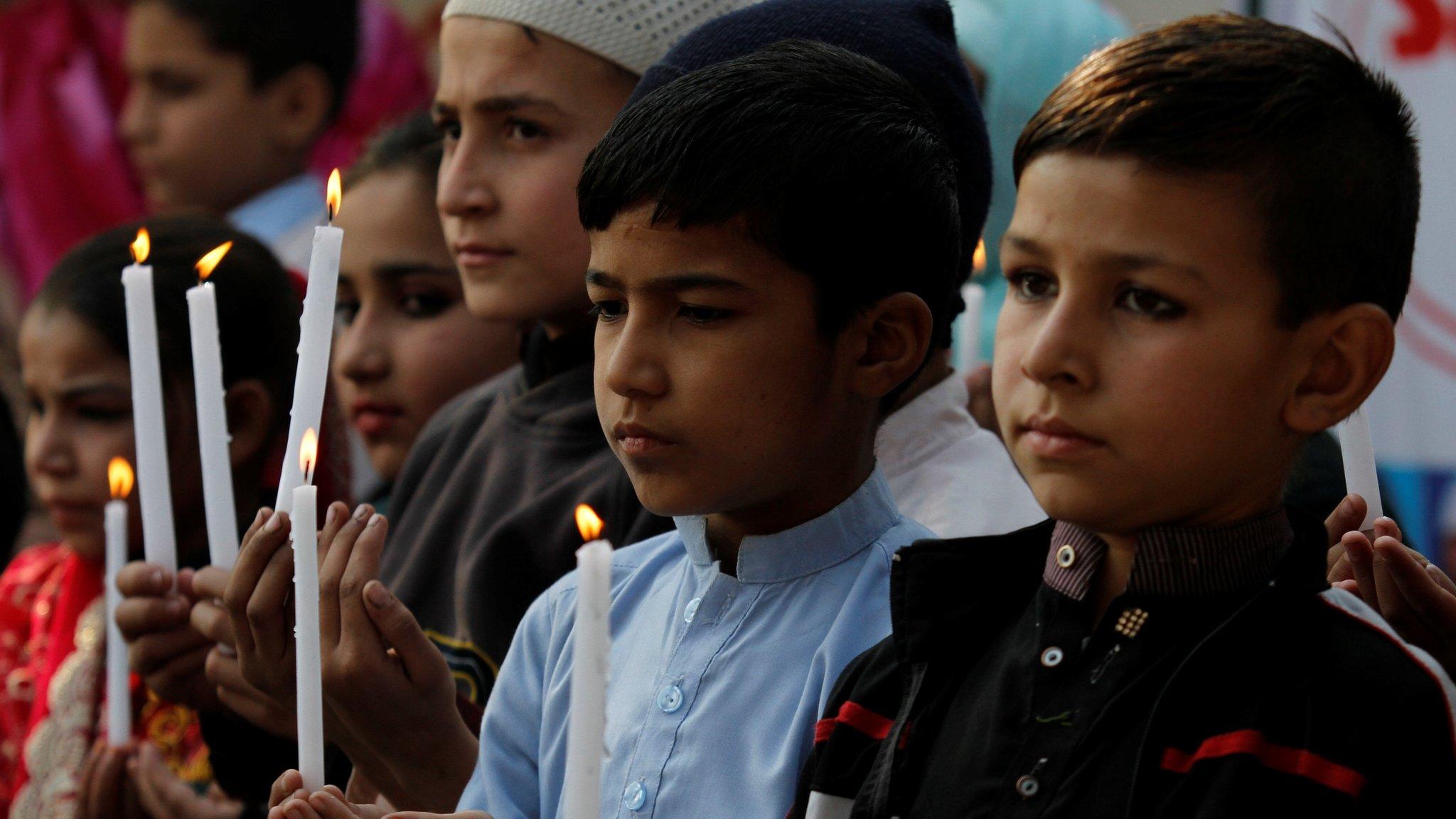Security tight as foreign cricketers return to Pakistan
- Published
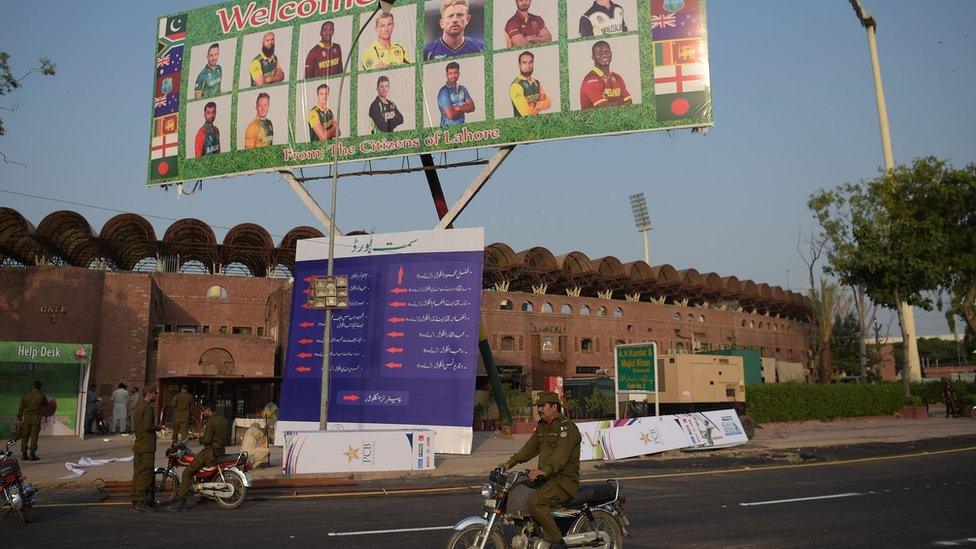
Huge billboards are up in Lahore celebrating the arrival of the foreign stars
Pakistan is hosting its first big international cricketing event on home soil for eight years.
Security is tight for the three-match T20 series between Pakistan and a World XI in Lahore, beginning on Tuesday.
International teams stopped visiting Pakistan after a March 2009 attack on the Sri Lankan team in which seven of its players were injured.
In 2015, a tour by the Zimbabwean team was marred by a bomb attack near the Lahore stadium.
Cricket is hugely popular in Pakistan, and cricketing authorities have been keenly working to revive the game at home.
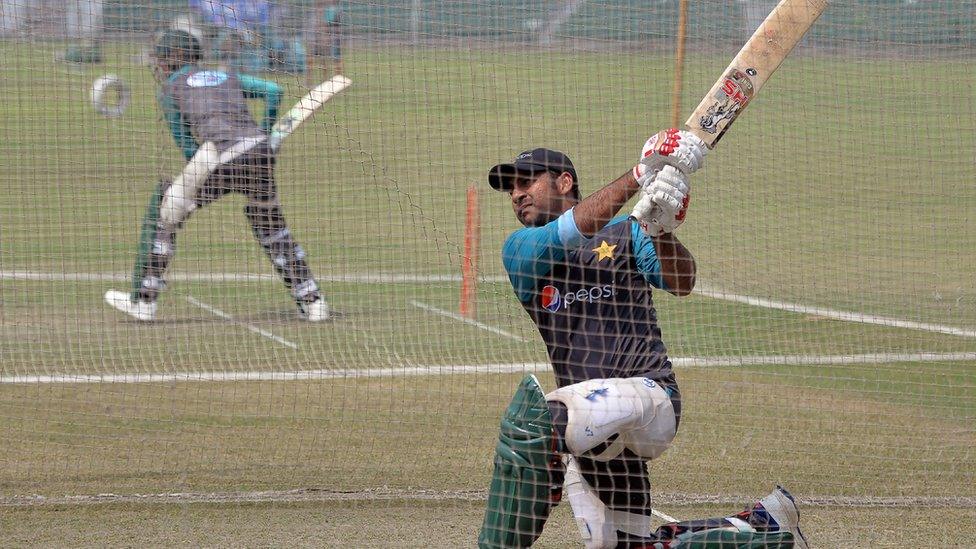
Pakistan cricket captain Sarfraz Ahmad (R) hits a shot during a practice session
In a colourful ceremony on Monday, the captains of the two teams unveiled what the Pakistan Cricket Board (PCB) has named the Independence Cup trophy, then led their teams out to practice in the stadium.
The World XI has drawn players from seven countries. Two more matches will be played on Wednesday and Friday.
Most parts of the city around the hotel where the international players are staying and the Gaddafi Stadium have been closed to traffic and business activity until the end of the series.
Authorities in Lahore, Pakistan's second largest city, say the threat of militant violence that peaked during 2009-13 has receded but not ended.
The 2009 attack on Sri Lanka's players sent shockwaves around Pakistan and the cricketing world. Six policemen and two civilians, including the driver of a minibus carrying the game's umpires, were killed.
Later this month, Sri Lanka are set to play in Pakistan for the first time since their team bus was attacked.
Commissioner of Lahore Abdullah Sumbal told the BBC "there are multiple new threats [of militant attacks] and steps have been taken to counter them" for the World XI matches.
Officials say more than 8,000 police personnel have been deployed for security duties and traffic management, in addition to paramilitary troops and intelligence service personnel.
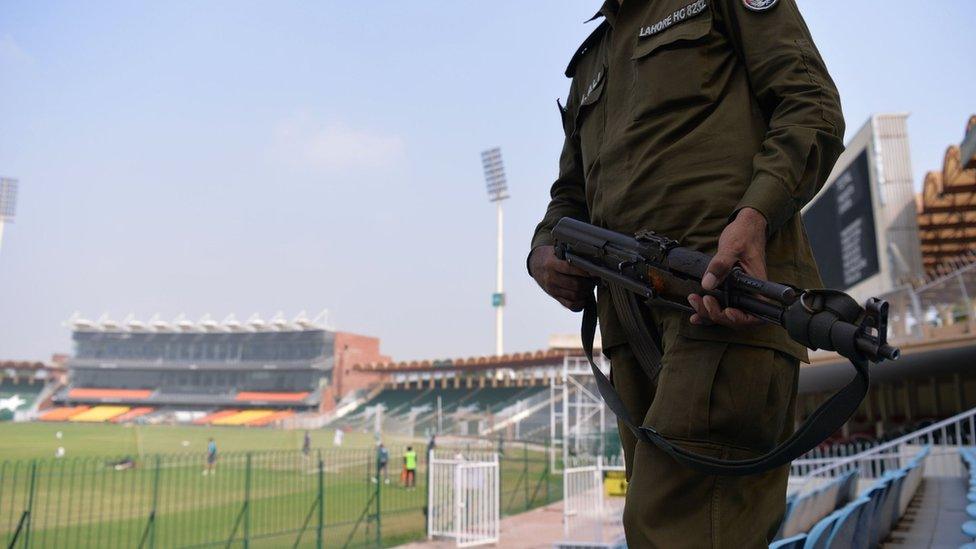
Pakistani officials say they are taking no chances with security
A makeshift hospital has also been set up near the stadium, which is equipped with a fleet of 20 ambulances.
Critics have voiced concern over whether a cricket series is worth playing if the government has to bring the city to standstill. But the chairman of the PCB, who is also the brains behind this series, has justified the security measures.
"To achieve a greater benefit, the nation will have to make small sacrifices," he told journalists.
His sentiment was echoed by World XI coach Andy Flower, who told the media: "The World XI has come to Pakistan in order to demonstrate the unity within the cricket family."
Captain of the World XI Faf du Plessis, who plays for South Africa, said: "This will be the first time when we have come to play cricket for something that is much bigger than the game itself."
Meanwhile, cricket enthusiasts from all over the country are converging on Lahore, where most of the tickets for the matches have sold out.
Fans have been protesting at ticket shortages outside banks and the stadium, where ticket kiosks have been set up.
One fan, Farhad Jarral, a student who came from Karachi, told the BBC he spent three days in queues and was finally able to get hold of a $41 ticket.
"It is really expensive and heavy on my budget, but anything goes for the love of cricket."
- Attribution
- Published10 September 2017
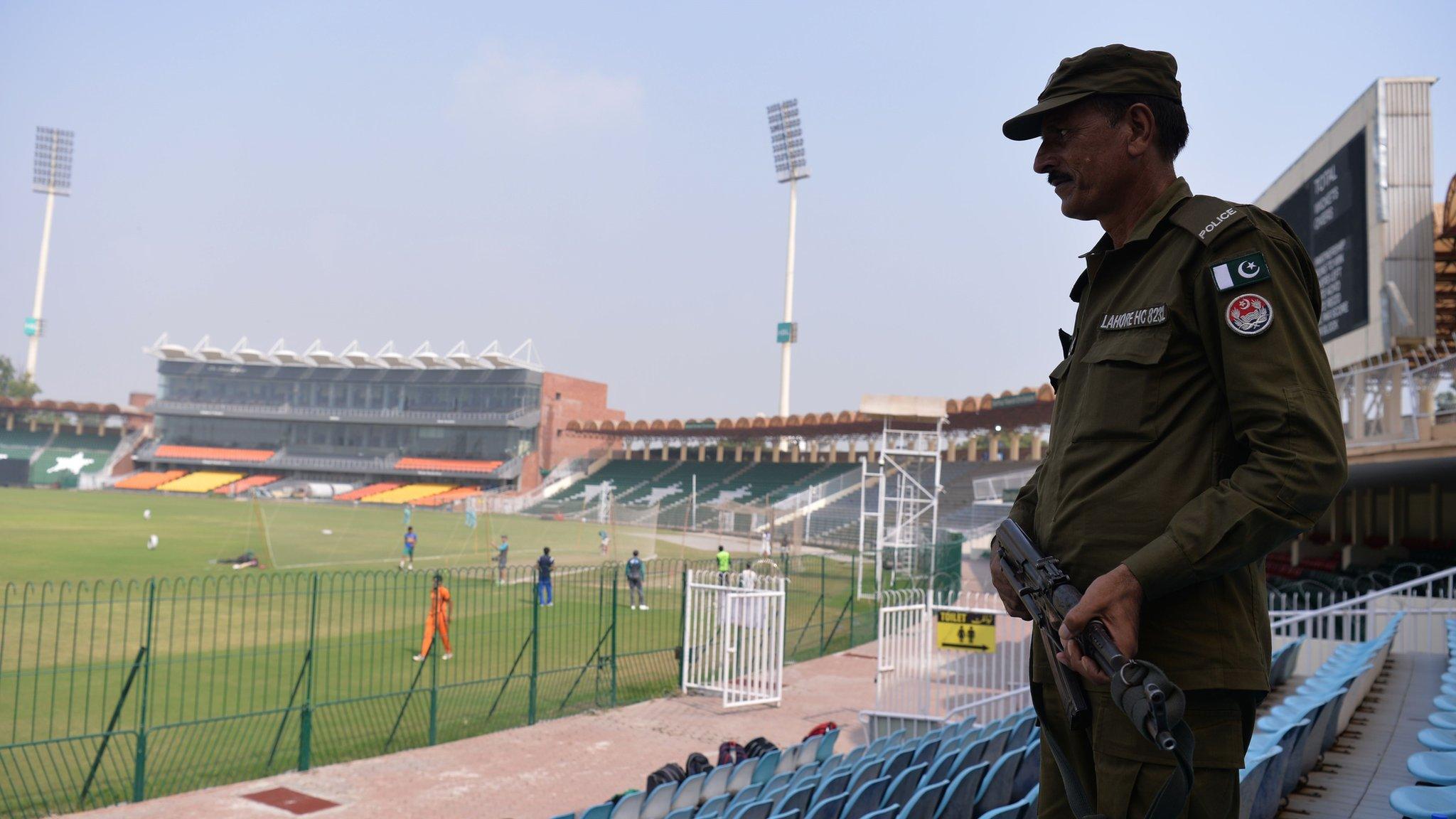
- Published4 March 2017
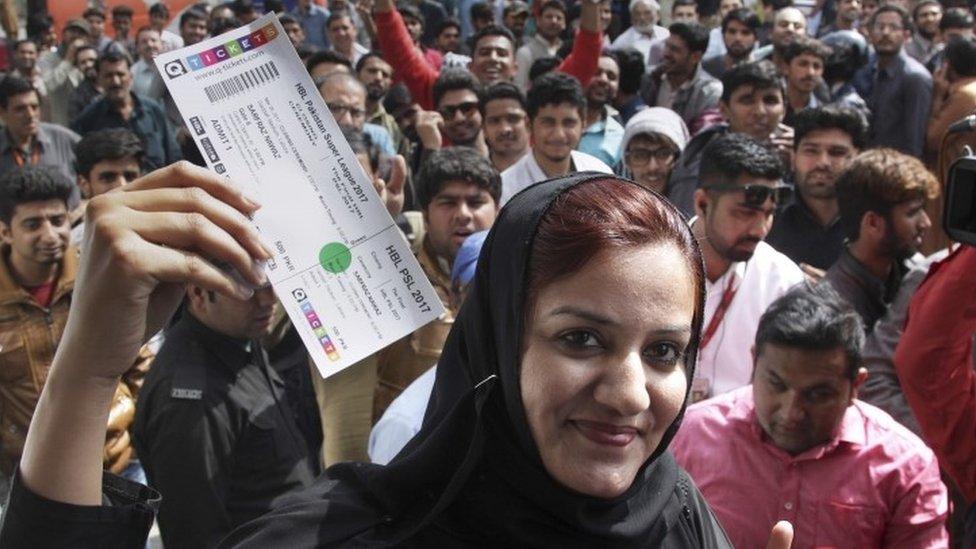
- Published31 May 2015
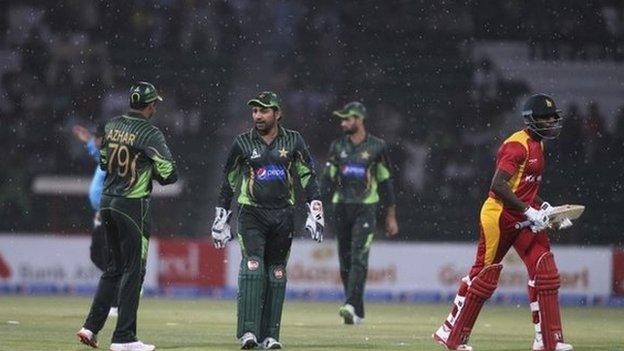
- Published1 February 2017
